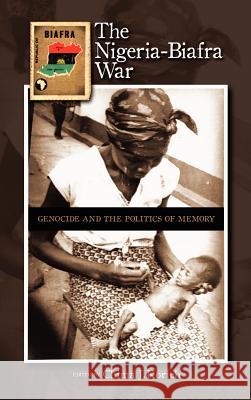The Nigeria-Biafra War: Genocide and the Politics of Memory » książka
The Nigeria-Biafra War: Genocide and the Politics of Memory
ISBN-13: 9781604978117 / Angielski / Twarda / 2012 / 370 str.
In 1967, Nigeria was plunged into a brutal civil war with secessionist Biafra. The war, which lasted for 30 months and led to the death of over one million ethnic Igbo, has been described as the first genocide in post-colonial Africa. Although much has been written about the Nigeria Civil war, most of what has been written remains the perspectives of the major actors and generals who conducted the war. This book, through careful analysis of the experiences of those who witnessed the war on the Biafra side as well as other primary and archival sources, brings to life the Civil War-time trials and tribulations of ordinary Biafrans. Focusing primarily on the Biafran side of that civil war, the book reexamines the civil war from the perspective of non-military support of the war effort and the lingering human costs of that conflict. It also presents the Biafra experience in the context of issues of genocide, the role of humanitarian and international civil or advocacy groups; International Organizations and conflict resolution; and the impact of the Cold War and resources control (oil) in shaping the contours of the Nigeria-Biafra War. Based on personal experiences of the Biafra-Nigeria War, this book speaks to some elements in the causes of the war, the actual conduct of the war on both sides, and the underlying genocidal rather than political motivations for the war. As Michael J. C. Echeruo notes "Biafra should stand in the world's conscience as a monument to the possibility of successfully resisting 'final solutions.'"' This is an important book for collections in African studies, history, international studies, and political science.











